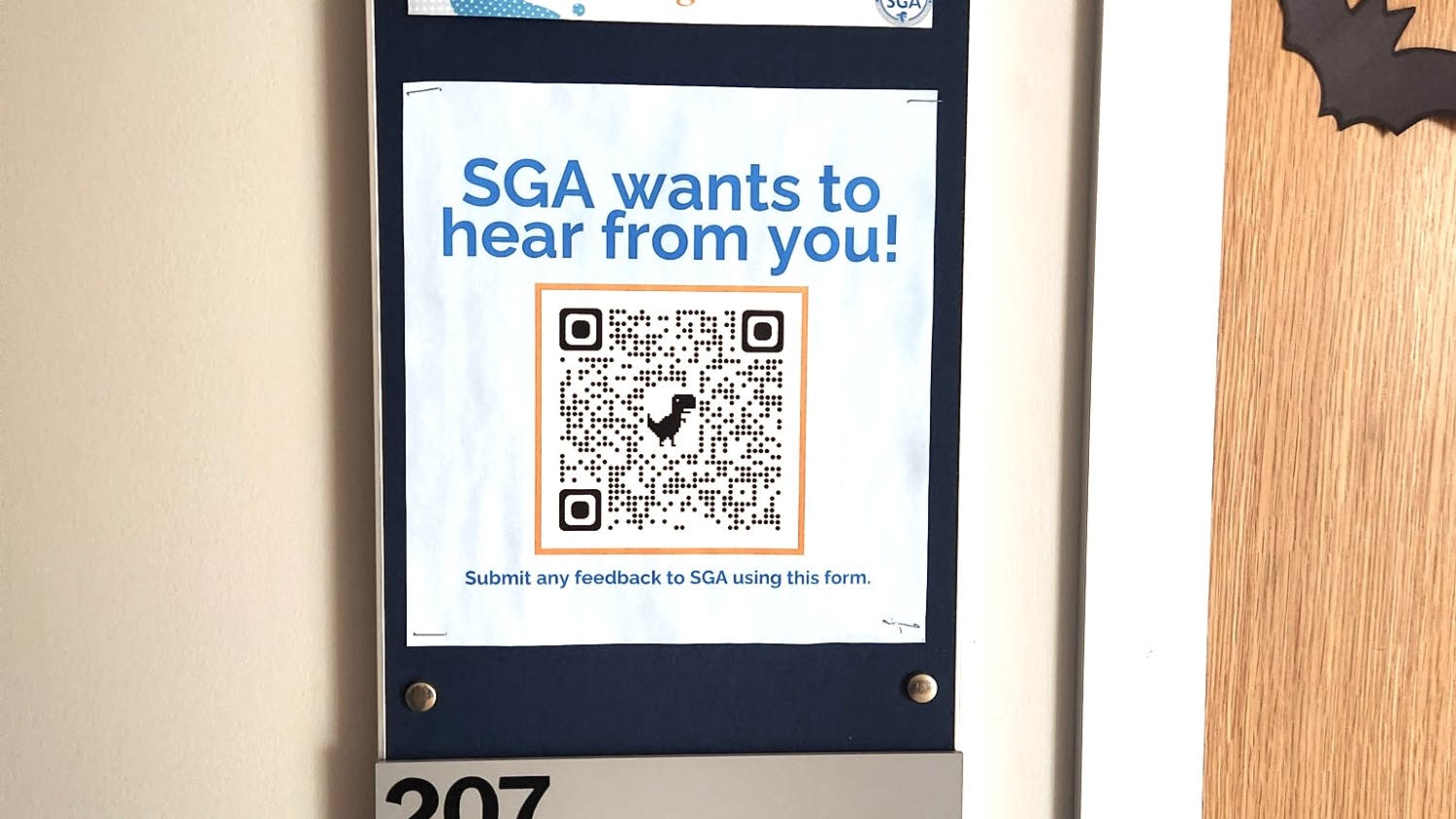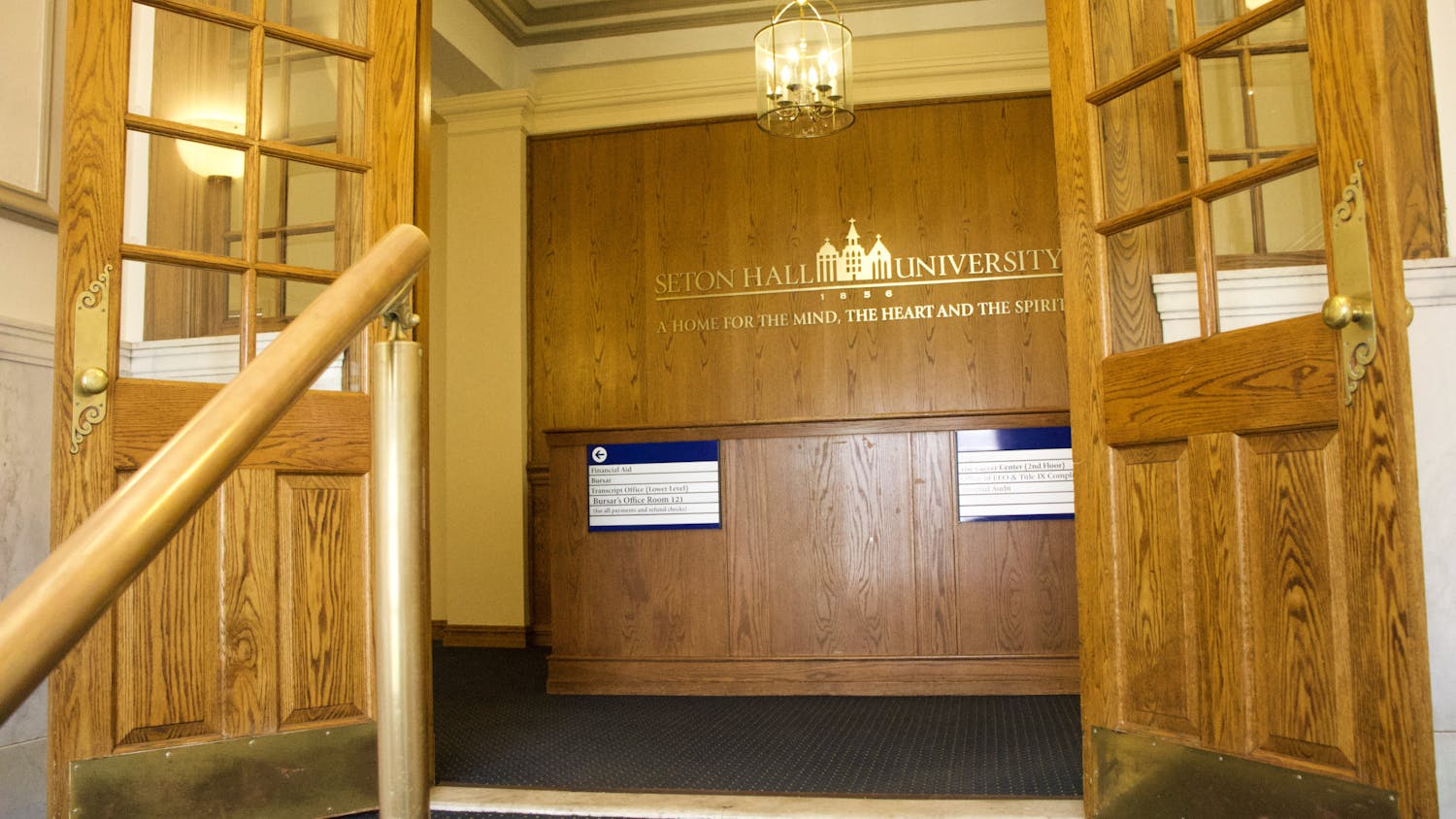Fourteen Seton Hall Law School professors recently signed a letter that was run in The New York Times entitled, “The Senate Should Not Confirm Kavanaugh.”
[caption id="attachment_24532" align="aligncenter" width="838"] Photo via Wikimedia[/caption]
This letter, which was signed by more than 2,400 law professors from across the United States, urged the Senate to reconsider confirming President Donald Trump’s supreme court nominee, Brett Kavanaugh, on the basis that he “displayed a lack of judicial temperament that would be disqualifying for any court, and certainly for elevation to the highest court of this land” during the Senate hearings that occurred on Sept. 27.
The letter was presented to the United States Senate on Oct. 4 just days after Dr. Christine Blasey Ford testified in front of the Senate Judiciary Committee about her alleged assault when both she and Kavanaugh were in high school. Ford claimed that a drunken Kavanaugh attempted to take her clothes off and covered her mouth to keep her from screaming, according to The New York Times. Two other women came forward after Ford went public claiming that Kavanaugh had assaulted them as well, and fourth accusation rumors surfaced.
Debates arose in real life and on social media following Ford’s testimony and Kavanaugh’s subsequent reaction. Despite these accusations and a formal FBI investigation, Brett Kavanaugh was confirmed by the Senate on Oct. 7 and is now sitting on the Supreme Court as an associate justice.
Dr. Andrea McDowell, one of the Seton Hall Law professors who signed the letter that was published in the NYTimes, said she is not happy that Kavanaugh was confirmed.
“Whenever the Justice [Kavanaugh] rules against Democratic positions in the future, the losers will of course believe that he is influenced by his feelings,” she said. “Many will find it difficult to accept his decisions as fair."
McDowell said she’s not sure what the country can do going forward.
“I hope that the uproar over this appointment process will shock everyone into civility, that the party in power will pick less polarizing candidates, and that nominees will keep their tempers during their hearings; but I do not expect these things to happen,” she said.
Dr. Thomas Healy, another professor who signed the letter, said that he too is not pleased that Kavanaugh was confirmed, but that at this point, we [the American people] “have to hope that he recognizes the responsibility he has been given and that he works to preserve the credibility and legitimacy of the Supreme Court.”
Healy also believes that we should insist that the Senate Judiciary Committee takes its role in the confirmation process more seriously in the future and to full investigate any claims of misconduct by judicial nominees. Healy also said he hopes that we urge the American president to seek to nominate candidates who will win wide bipartisan support going forward.
“I hope we can learn that the Supreme Court is too important an institution to risk its credibility with partisan politics,” he said.
Dr. Solangel Maldonado, who also signed the letter, shared her thoughts on Kavanaugh’s confirmation.
“Although I am disappointed that the Senate did not share the concerns of more than 2,400 law professors, I am heartened that so many of us spoke out,” she said. “As a teacher, it’s important to model for our students the importance of professionalism, temperament and impartiality not only in the classroom but through our actions outside the classroom.”
Maldonado went on to say that she hopes the justices will continue to respect precedent and will not be influenced by political party or the president who nominated them.
“Judicial temperament and impartiality are essential for any judge and certainly a U.S. Supreme Court justice,” she said.
Maldonado concluded by saying what she hopes the American people can do going forward.
“For many individuals this process confirmed their worst fears that women’s voices will not be heard and that allegations of sexual misconduct will be ignored,” she said. “However, I hope that’s not the lesson we learn. Rather, I hope that individuals who have not been engaged in the political process will recognize the importance of making their voices heard by voting in every election, encouraging others to vote and running for office if their representatives do not represent their interests and values. So, be sure to vote Nov. 6.”
Isabel Soisson can be reached at isabel.soisson@student.shu.edu.
Photo via Wikimedia[/caption]
This letter, which was signed by more than 2,400 law professors from across the United States, urged the Senate to reconsider confirming President Donald Trump’s supreme court nominee, Brett Kavanaugh, on the basis that he “displayed a lack of judicial temperament that would be disqualifying for any court, and certainly for elevation to the highest court of this land” during the Senate hearings that occurred on Sept. 27.
The letter was presented to the United States Senate on Oct. 4 just days after Dr. Christine Blasey Ford testified in front of the Senate Judiciary Committee about her alleged assault when both she and Kavanaugh were in high school. Ford claimed that a drunken Kavanaugh attempted to take her clothes off and covered her mouth to keep her from screaming, according to The New York Times. Two other women came forward after Ford went public claiming that Kavanaugh had assaulted them as well, and fourth accusation rumors surfaced.
Debates arose in real life and on social media following Ford’s testimony and Kavanaugh’s subsequent reaction. Despite these accusations and a formal FBI investigation, Brett Kavanaugh was confirmed by the Senate on Oct. 7 and is now sitting on the Supreme Court as an associate justice.
Dr. Andrea McDowell, one of the Seton Hall Law professors who signed the letter that was published in the NYTimes, said she is not happy that Kavanaugh was confirmed.
“Whenever the Justice [Kavanaugh] rules against Democratic positions in the future, the losers will of course believe that he is influenced by his feelings,” she said. “Many will find it difficult to accept his decisions as fair."
McDowell said she’s not sure what the country can do going forward.
“I hope that the uproar over this appointment process will shock everyone into civility, that the party in power will pick less polarizing candidates, and that nominees will keep their tempers during their hearings; but I do not expect these things to happen,” she said.
Dr. Thomas Healy, another professor who signed the letter, said that he too is not pleased that Kavanaugh was confirmed, but that at this point, we [the American people] “have to hope that he recognizes the responsibility he has been given and that he works to preserve the credibility and legitimacy of the Supreme Court.”
Healy also believes that we should insist that the Senate Judiciary Committee takes its role in the confirmation process more seriously in the future and to full investigate any claims of misconduct by judicial nominees. Healy also said he hopes that we urge the American president to seek to nominate candidates who will win wide bipartisan support going forward.
“I hope we can learn that the Supreme Court is too important an institution to risk its credibility with partisan politics,” he said.
Dr. Solangel Maldonado, who also signed the letter, shared her thoughts on Kavanaugh’s confirmation.
“Although I am disappointed that the Senate did not share the concerns of more than 2,400 law professors, I am heartened that so many of us spoke out,” she said. “As a teacher, it’s important to model for our students the importance of professionalism, temperament and impartiality not only in the classroom but through our actions outside the classroom.”
Maldonado went on to say that she hopes the justices will continue to respect precedent and will not be influenced by political party or the president who nominated them.
“Judicial temperament and impartiality are essential for any judge and certainly a U.S. Supreme Court justice,” she said.
Maldonado concluded by saying what she hopes the American people can do going forward.
“For many individuals this process confirmed their worst fears that women’s voices will not be heard and that allegations of sexual misconduct will be ignored,” she said. “However, I hope that’s not the lesson we learn. Rather, I hope that individuals who have not been engaged in the political process will recognize the importance of making their voices heard by voting in every election, encouraging others to vote and running for office if their representatives do not represent their interests and values. So, be sure to vote Nov. 6.”
Isabel Soisson can be reached at isabel.soisson@student.shu.edu.





